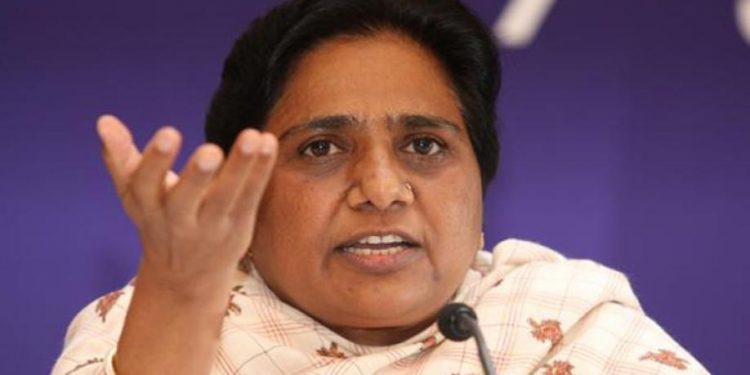Lucknow: A doughty survivor of the rough-and-tumble of politics, Bahujan Samaj party (BSP) Mayawati has manoeuvred her way deftly through the many ups and downs of the game – making and breaking alliances depending on the political mood of the hour.
The BSP supremo Monday brought the curtains down on her party’s alliance with the Samajwadi Party (SP) which was forged to fight the BJP in the Lok Sabha elections in Uttar Pradesh.
The ‘gathbandhan’ between the arch rivals did not bring the expected returns and the much discussed bonhomie with the SP, under the leadership of Akhilesh Yadav, has predictably ended.
Mayawati declared on Twitter, “… in the interest of the party (BSP) and movement, the party will contest all small and big elections on its own strength (henceforth).”
Though the alliance did not come up to her expectations in the 2019 Lok Sabha polls, the BSP won 10 seats, a big gain from the zero in 2014. The SP just managed to maintain its tally of five seats though it faced humiliating defeats in Badaun, Kannauj and Firozabad where sitting MPs and family members Dharmendra Yadav, Dimple Yadav and Akshay Yadav lost.
With a history of tying up with political opponents in the state and leaving them soon after, this could well have been par for the electoral course.
In 1993, the BSP contested the Assembly elections for the first time in alliance with the SP. The party’s tally went up five times to 65 from a mere 13 in 1989. Two years later, there was a spectacular fall out with the SP when Mayawati came under attack in a state guesthouse here.
Following the incident, the BJP extended support to the BSP and Mayawati became Chief Minister of UP for the first time in 1995.
Within four months, she abandoned the BJP and went on to contest the 1996 election teaming up with her ‘Manuvadi’ enemy – the Congress – to try and manipulate an upper-caste-Dalit combine and from 65 seats in the Assembly, it grew to 68.
In 1997, Mayawati became Chief Minister for the second time, again under a unique six-month-rotation arrangement. She completed her term and reluctantly handed charge to the BJP’s Kalyan Singh only to pull the plug soon after.
In the 2002 elections, with 101 seats in the Assembly, the BSP again recorded handsome gains and Mayawati became the Chief Minister for the third time with support from the BJP.
Within three months, Mayawati broke the alliance and resigned from the post of Chief Minister. She contested elections in 2007 and returned to power with a historic mandate and became UP Chief Minister for the fourth time.
The BSP’s break-up Monday with the SP came after daylong deliberations here Sunday.
“Everyone is aware that forgetting everything of the past as also anti-BSP and anti-Dalit decisions like reservation in promotions and bad law and order during the SP rule in 2012-17, the BSP adhered to the ‘gatbandhan dharma’ with the Samajwadi Party in the interest of the country,” Mayawati tweeted in Hindi. “But the SP’s attitude after the elections has forced the BSP to think, will it be possible to defeat the BJP in future,” Mayawati added.
The BSP supremo, however, did not elaborate on what she meant by the SP’s ‘attitude’.
PTI







































